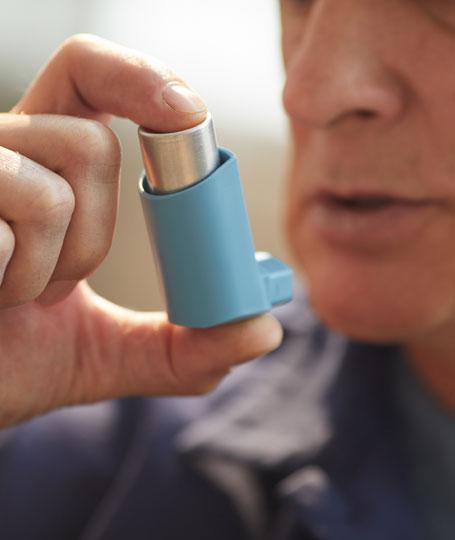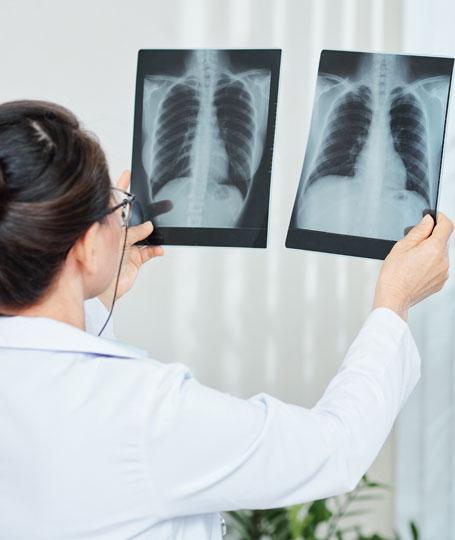
What is pneumology?
Pneumology is the medical specialty devoted to the treatment of diseases of the lungs, bronchi, pleura (the envelope covering the lungs) and mediastinum (the space between the lungs). Pneumology is concerned with tumoral (cancer) and non-tumoral pathologies.

Pneumology-Allergology Pneumologist Tunisia: fields of intervention
The Respirology Department cares for patients with allergies, acute or chronic respiratory pathologies, including palliative care.
Many pathologies can be managed in pneumology:
- Asthma ,
- Cancers of the lungs, bronchi or pleura,
- Respiratory insufficiency,
- Respiratory allergies,
- Diseases related to smoking (emphysema, chronic bronchitis...)
- Pulmonary arterial hypertension,
- chronic obstructive pulmonary disease (COPD),
- Infectious diseases (tuberculosis, pneumonia or lung abscess),
- Occupational respiratory diseases, due to exposure to certain substances (asbestos, chemicals, dust, etc.).
- Resuscitation, intensive care,
- Lung transplantation...etc.
When should you consult a pulmonologist in Tunisia?
If you present unusual symptoms, you should meet with your doctor. They will perform a medical examination and evaluate your general condition. They can refer you to the following cases:
- Having difficulty breathing
- Having a persistent cough
- Smoke
- Having unexplained weight loss
- have difficulty exercising because of respiratory problems


Pneumology Service Tunisia, the Center Clinic
The Pneumology Department provides care for chronic respiratory diseases. These are diseases affecting the bronchi, lungs, pleura and mediastinum (space between the lungs).
Respirologists at the Centre's Clinic accompany their patients throughout their journey. The pneumologist does everything necessary for an accurate diagnosis and effective treatment.
In order to reach a diagnosis and identify the origin of the disorder the pulmonologist:
- Interviews the patient to find out the nature of the disorders, their date of onset and the way they are triggered, the degree of discomfort felt,...
- Questions about the patient's history, risk factors such as smoking.
- Questions the patient about the environment, his daily life and habits (place of living, pets, etc...).
- performs a first auscultation, using a stethoscope ;
- In certain cases, he may have recourse to additional examinations: radiography, for example.
Allergology is a medical specialty concerned with the study, diagnosis and treatment of allergies: all clinical and biological manifestations of the immune system and allergies.
Allergology is the specialty of the allergist who must intervene in the case of:
- Repeated cough,
- Asthma,
- Repeated urticaria attacks,
- Important eczema,
- Or in case the eyes sting continuously.
The allergist begins with the questioning stage to find out the symptoms, family history and circumstances of the appearance of the problem. The specialist may then perform a blood test, allergic skin tests (placing a drop of allergen on the forearm and monitoring the reaction). These procedures are able to allow him to offer specific treatment.


